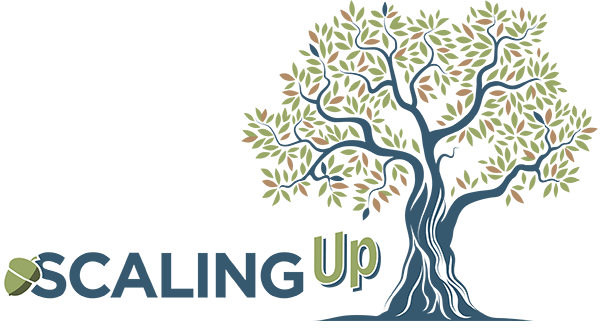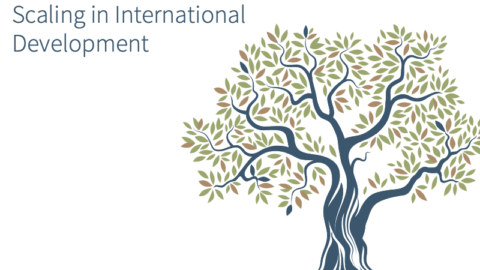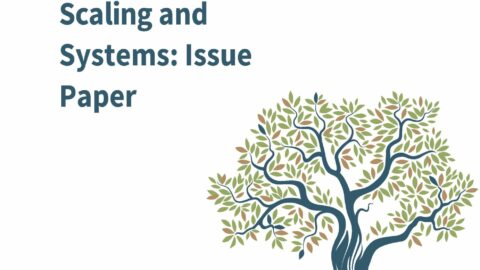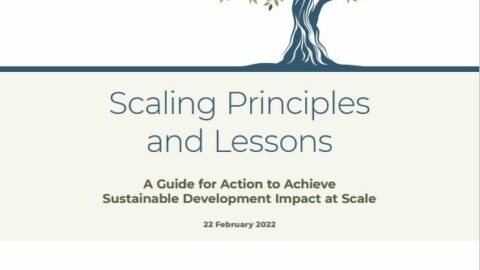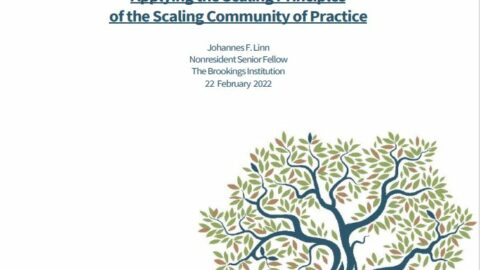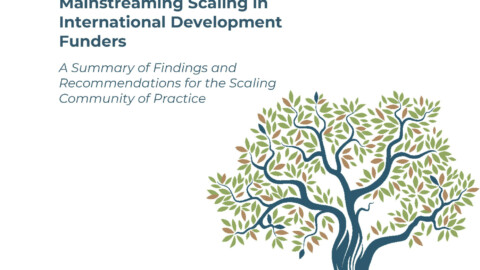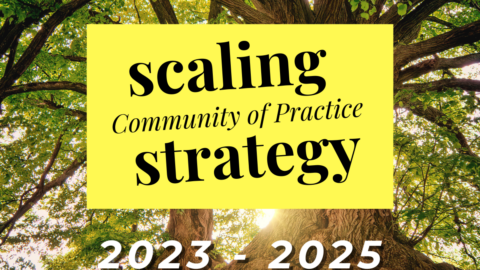Preface
The Scaling Community of Practice (CoP) launched an action research initiative on mainstreaming scaling in funder organizations in January 2023. This initiative has three purposes: to inform the CoP members and the wider development community of the current state of support for and operationalization of scaling in a broad range of development funding agencies; to draw lessons for future efforts to mainstream the scaling agenda in the development funding community; and to promote more effective funder support for scaling by stakeholders in developing countries. (For further details about the Mainstreaming Initiative, see the Concept Note on the COP website).
For the purpose of this initiative, scale is defined as sustainable impact at a significant share of the need, demand, or problem. Scaling is the process of reaching scale. Mainstreaming of scaling is defined as the systematic consideration by the funder of the scaling process in the appraisal of a project, in the decision to fund it, and in the monitoring and evaluation of the project’s implementation.
The Mainstreaming Initiative is jointly supported by Agence Française de Développement (AFD) and the Scaling Community of Practice (CoP). The study team consists of Richard Kohl (Lead Consultant and Project Co-Leader), Johannes Linn (Co-Chair of the Scaling CoP and Project Co-Leader), Larry Cooley (Co-Chair of the Scaling CoP), and Ezgi Yilmaz (Junior Consultant). MSI staff provide administrative and communications support, in particular Leah Sly and Gaby Montalvo.
The principal component of this research is a set of case studies of the efforts to mainstream scaling by selected funder organizations. These studies explore the extent and manner in which scaling has been mainstreamed, and the major drivers and obstacles. The case studies also aim to derive lessons to be learned from each donor’s experience, and, where they exist, their plans and/or recommendations for further strengthening the scaling focus.
The present case study focuses on successes, challenges and lessons in Feed the Future, The US Government’s Global Hunger and Food Security Initiative. It was prepared by Julie Howard, Independent Consultant, who served as Chief Scientist, Bureau for Food Security, and Senior Adviser to the USAID Administrator for Agricultural Research, Extension, and Education from 2011 to 2014.
Acknowledgements
The author is grateful to Mark Huisenga and Regina Eddy of USAID, and to Johannes Linn and Richard Kohl of the Scaling Community of Practice, for providing helpful comments on earlier drafts of this case study. The remaining errors are my own. No funding was provided by USAID for this case study.
Executive Summary
This study is part of an action research initiative undertaken by the Scaling Community of Practice (CoP) on mainstreaming scaling in funder organizations. Mainstreaming scaling is defined as the systematic consideration of sustainable outcomes at scale throughout the funding organization, including through mission statements, strategies, operational and administrative policies and practices, and monitoring and evaluation.
The case study’s focus is Feed the Future, the United States Government’s (USG) global hunger and food security initiative, and the United States Agency for International Development’s (USAID) experience with mainstreaming scaling of USG agriculture and food security-related programs in its role as Feed the Future coordinator.
Created in response to the devastating global food price crisis of 2007-08, Feed the Future was launched as a “whole of government” Presidential initiative, with contributions from 12 agencies coordinated by USAID. Feed the Future’s goals are to reduce the prevalence of poverty and malnutrition by 20 percent within geographic “zones of influence” of selected target countries.
Grounded in the Rome Principles, the Paris Declaration on Aid Effectiveness, and the Accra Agenda for Action, Feed the Future sought to “invest and partner differently” across the USG and with external partners to scale and sustain program outcomes and impacts in target countries. Key elements included support for comprehensive strategies for transforming the food system, investing in country-owned plans, improving donor coordination, leveraging multilateral institutions and the private sector, and delivering on sustained, accountable commitments.
The case study concludes that Feed the Future has achieved substantial success in elevating global food and nutrition security as a USG priority, stabilizing funding, and improving coordination across USG agriculture and food security programs. Feed the Future has reported impressive accomplishments from its inception through 2022 — including 23.4 million more people above the poverty line, and 3.4 million more children not stunted, in areas where Feed the Future works, more than 1000 innovations developed and deployed, $6.2 billion in agricultural financing unlocked, and $28 billion in agricultural sales generated.
The initiative’s success in mainstreaming a scaling approach is incomplete, however. It can be argued that Feed the Future has met the initial criteria for mainstreaming in its attention to sustainable outcomes at scale in Feed the Future goals, strategic objectives and its framework for collaboration across agencies and with external partners. There is limited evidence, however, of mainstreaming scaling in Feed the Future (beyond USAID) in operational policies, financing instruments, allocation decisions and time horizon, in administration, and in monitoring and evaluation.
Sustaining the high-level leadership critical to strategic and operational coordination has proved challenging for Feed the Future. And FTF’s important achievements are clouded by unanswered questions from the US Government Accountability Office and other analysts about the ability of Feed the Future’s current M&E system to fairly attribute the outcomes to whole-of-government FTF efforts.
Feed the Future – like every other food and agriculture organization working today – is finding there is much more work to do to design and implement monitoring and evaluation systems – and more broadly – institutional incentives – to support scaling and transformation objectives across a wide range of actors and contributions.
